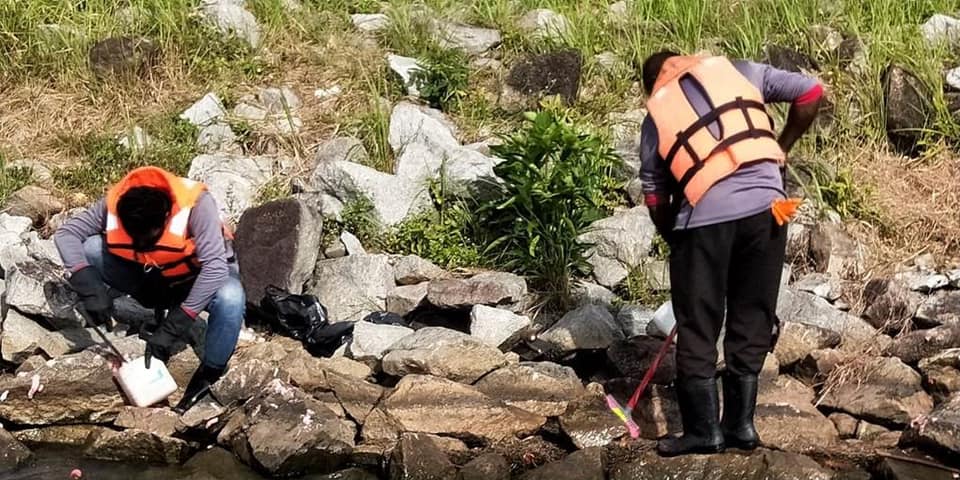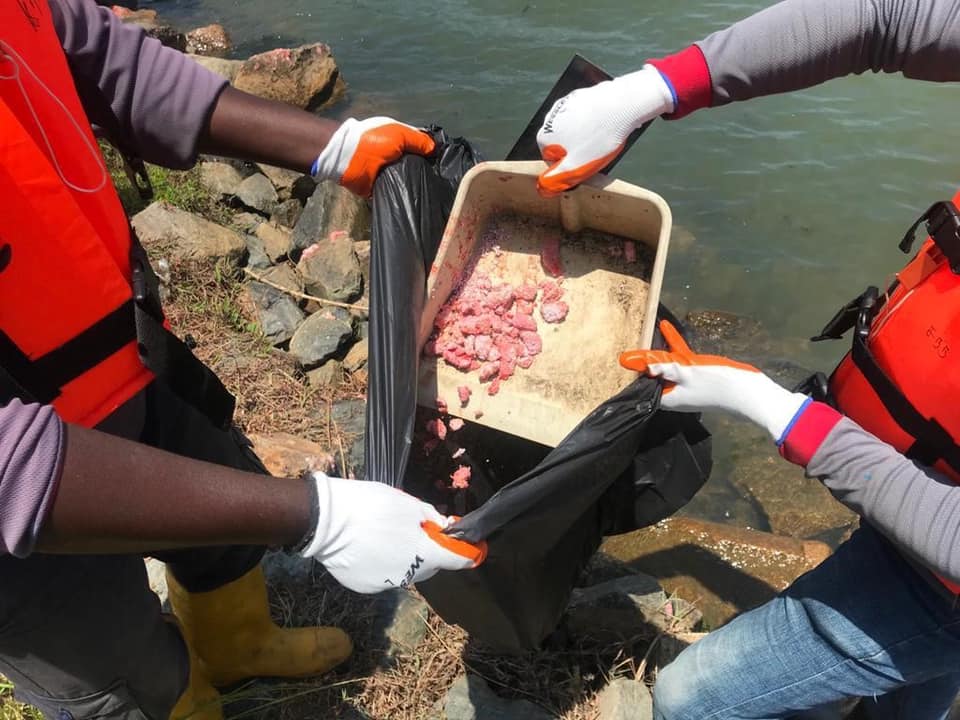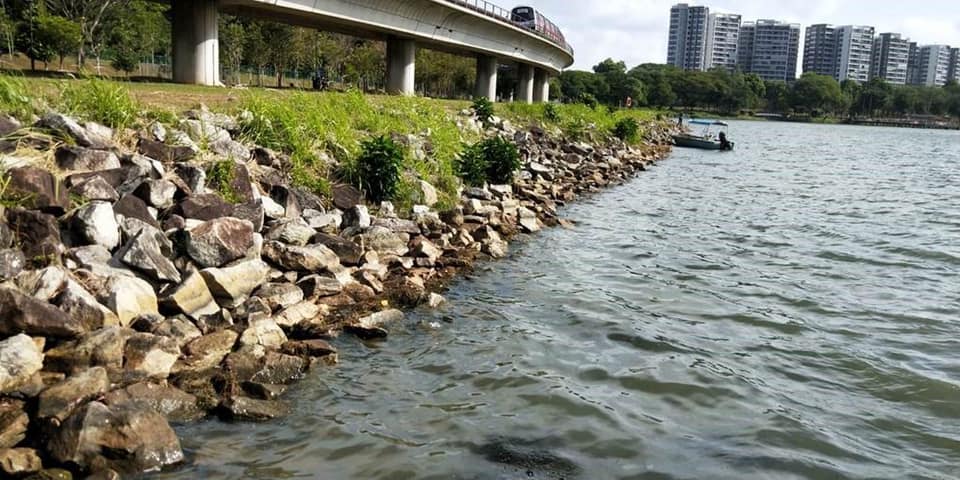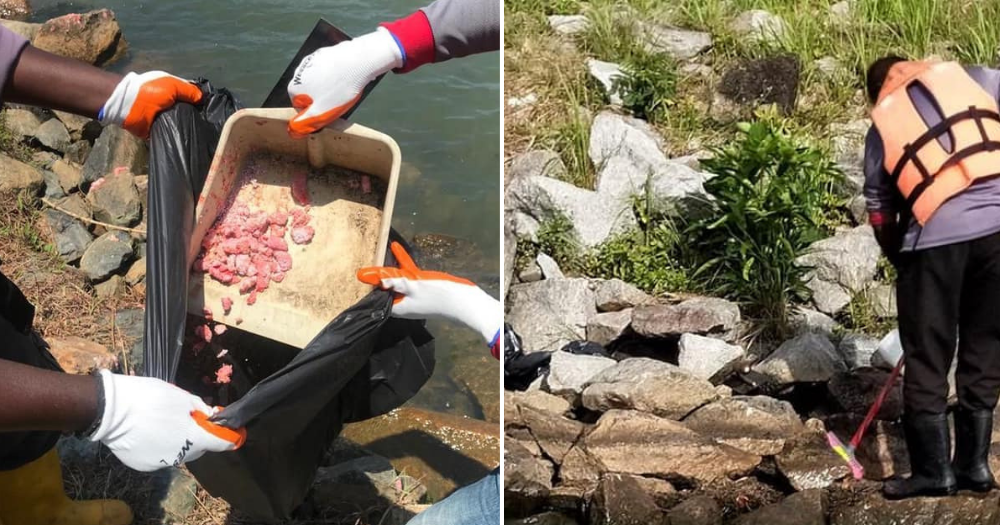The numerous globs of pink snails' eggs lining the banks of a reservoir in Singapore have been cleared by workers, leaving the water's edge pristine once again.
The eggs, resembling pink roe or mentaiko, belong to the non-native and invasive golden apple snail.
Pictures of the eggs caused quite a buzz among nature lovers due to their alien appearance.
Eggs do not affect water quality
On Mar. 12, Singapore's water agency PUB shared on their Facebook that the long lines of eggs have been cleared.
This was part of routine maintenance works in nature areas and reservoirs.
Photos showed workers scraping the eggs off the rocks and discarding them in trash bags.
 Photo from PUB / FB
Photo from PUB / FB
 Photo from PUB / FB
Photo from PUB / FB
 Photo from PUB / FB
Photo from PUB / FB
A shot of the spotless banks after.

The eggs can be toxic if ingested but in a statement to Mothership, PUB assured that the eggs do not affect the water quality of reservoirs.
Additionally, the water agency conducts over 500,000 water quality tests per year to ensure that Singapore's tap water is within the World Health Organisation's drinking water guidelines.
The invasive golden apple snail
The golden apple snail is usually found in urbanised freshwater habitats such as reservoirs, ponds and ditches.
This species of snail is native to South America and notorious for its reproductive ability — it lays eggs in clusters of up to 1,000 eggs.
As such, it often out-competes other species of snails which lay eggs in smaller quantities.
One native species threatened by the golden apple snail is the apple snail, which has to compete with its invasive cousin for food and shelter as well.
NParks stated that currently, it has not detected any golden apple snails in the freshwater streams of nature reserves.
The snails will be removed if detected.
PUB also reminded people not to release animals into water bodies as this could upset the existing ecosystem and threaten native biodiversity.
Top photo from PUB / FB
If you like what you read, follow us on Facebook, Instagram, Twitter and Telegram to get the latest updates.

